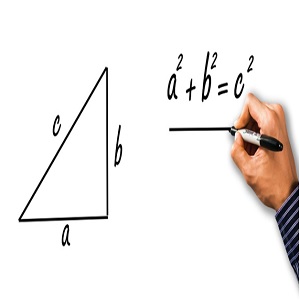How to Top Class 5 Olympiad
 Olympiad, In 1996, the Science Olympiad Foundation (SOF) launched an effort to identify the brightest brains among the audience. Every year, about 200000 children take Olympiad examinations to put their knowledge to the test on a larger scale and to see where they stand. Olympiad not only provides you exposure, but it also gives you a reputation that allows you to start a new level of seeding and keep your learning up to date to constantly stand out from the crowd.
Olympiad, In 1996, the Science Olympiad Foundation (SOF) launched an effort to identify the brightest brains among the audience. Every year, about 200000 children take Olympiad examinations to put their knowledge to the test on a larger scale and to see where they stand. Olympiad not only provides you exposure, but it also gives you a reputation that allows you to start a new level of seeding and keep your learning up to date to constantly stand out from the crowd.
If you're in grades 1 through 12 and haven't taken an Olympiad test yet, you're losing out on some fantastic possibilities to stand out. It's a fantastic opportunity to excel from the outset, right from school. Why wait till you graduate from high school and begin working? It is often said that your future may be sculpted now.
If you believe you are currently in first place in your school or district, what do you need to do differently? Never, ever, ever, ever, ever, ever, ever, ever, ever, ever, ever, ever Continue to take on new challenges and learn new things as if you were here to learn something new every day, minute, and second. Always remember that if you don't take the time to do it, someone else will.
Know the Class 5 Olympiad well
There are two tiers of Olympiad examinations. The first level will consist of objective questions. Students in grades 1 to 4 receive 35 questions for 40 points, while students in grades 5 to 12 receive 50 questions worth 60 points. The test will have a one-hour time restriction.
The Olympiad syllabus is based on the school's normal curriculum. It is critical to identify concerns and attain proficiency in all of the ideas covered in the ordinary school curriculum to excel on the test. Quantitative Aptitude, Written & Verbal English, and Logic-Based Reasoning are all important parts of the course that will test your originality and inventiveness.
Time management is a basic yet challenging technique
It's long been said that one of the most important skills for conquering anything is time management. The same may be said about Olympiad preparation. You'll need to set aside some time to study for the tests because it's all about standing out, therefore you'll need to be able to think creatively and identify exceptions to all of the taught concepts in your usual syllabus. Consider the why and how of the syllabus, and always strive to link the practical importance and application of those ideas to real-world case studies of learned theories and facts.
Learn, Practice, and Repeat the Process
We often believe that we have studied and answered all of the questions, but this is not always the case. Re-examine your question and consider what you can do that is out of the usual. They identify the questions that no one else does and then solve them, just like you. Always practise and revise things on multiple aspects to observe how terminology/theory differs based on the instances. Always remember to LPR, which stands for "Learn, Practice, Repeat." Repeat until the exam is over, and you can be confident that your scores will be great.
Positive Thinking & Being Refreshed
When it comes to sunshine, being upbeat and energetic is crucial. Never feel as though you've had your best shot and settle in. Always look for new challenges in yourself. Start over to discover a decent and even better answer or technique to an issue, and you'll notice a difference in your learning. The books and curriculum will be the same for all candidates; nevertheless, only one will be able to achieve Rank first due to his or her approach, thought, innovation, and hard effort. You do the same and take the first position.
Samples and Mocks to Solve
Your success will necessitate a lot of hard effort and strategy. Doing a lot of mocks and sample papers can help you identify new obstacles and come up with all phases of the practical results of the theories you've learned. To get a leg up on the competition, consider referring to Previous Year Paper for IMO Class 5 Maths 2012 and creating your questions based on the mocks/sample papers with a fresh notion or a hybrid of a few themes. Nobody else is doing it, and by doing it, you are bringing yourself closer to perfection.
It is well known that in tests, it is all about combining many concepts or asking for exceptions that a typical student would never conceive of or be able to think of. That's a tried-and-true method for weeding out the competitors and discovering the odd man out.
Key Tips to Crack Olympiads
- Concentrate on mastering the principles and developing fundamental problem-solving abilities.
- Regularly practise maths. Make sure you're working on as many different sorts of problems as you can. On the Internet, you may practise a variety of questions on various themes.
- To improve your outcomes, identify your areas of strength and weakness and concentrate on the latter.
- Understand the pattern of prior years' papers by solving model and mock papers. This will assist you in becoming familiar with the test's pattern and structure.
- Learn how to solve various sorts of problems using shortcuts. To save time and work more efficiently, have these things handy.
- Read all of the questions carefully. The intricacy of Olympiad issues is well-known, which means you'll have to put in extra work.
- Instead of wasting time on tough questions during the exam, attempt some short and simple ones first.
- Spend a lot of time practising each topic. After that, take some practise exams, examine your results, and write a report on your present score.
- Make a list of crucial things to remember and perform a fast review before the examinations. It aids in the rapid acquisition of knowledge.
Conclusion
All of the tips above will not only help you strengthen your concepts and enhance your Olympiad test scores, but they will also help you improve your marks on school exams and boards. The more you practise, the more immersed and interested you'll get in learning new applications of concepts you've learned during your preparation, eventually pushing you beyond your comfort zone and assisting you in mastering the subject.

